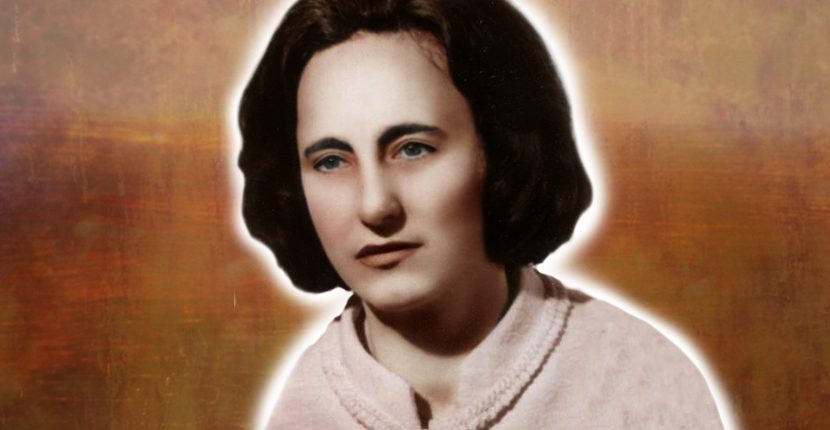For a time in the late 1970s/1980s, Elena Ceausescu (1916-89) of Romania was one of the two most powerful women on Earth. The other, the Prime Minister of Great Britain Margaret Thatcher, was elected by the people of her country. Elena Ceausescu was the president’s wife, and was perhaps not only the most powerful woman on the Continent, but the most hated as well.
She was the wife of Romanian dictator Nicolae Ceaușescu (1918-89), who ruled Romania with an iron fist in the years 1965-89. Over the course of his rule, Ceaușescu and his wife organized a cult of personality around the leader, which in many ways paralleled that of Mao, Stalin, and Hitler.
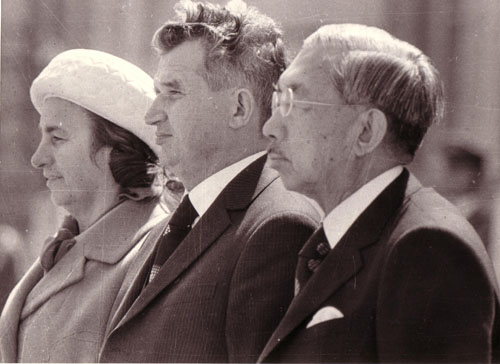
As his rule went on, Ceauseșcu not only fostered his own cult of personality, but became prey to it. He spent much of Romania’s Gross Domestic Product on his palace (still one of the largest buildings on Earth), and created a security apparatus that was so intrusive that it is estimated that over ten percent of the country’s population were informants.
This was done to ensure and prolong his personal rule, not for the benefit of the country. Those opposing Ceaușescu, his wife, their family and cronies many times disappeared – for good.
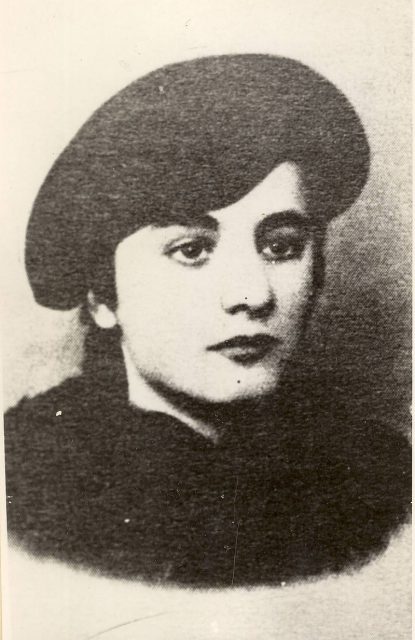
Side by side with the President was his wife, Elena. Around her another personality cult was constructed. In official statements, she was referred to as the “Mother of the Nation.” Many Romanians had other not so flattering names for her. By all accounts, Elena was crude, not bright, devious, vindictive and intensely concerned with her not so good looks.
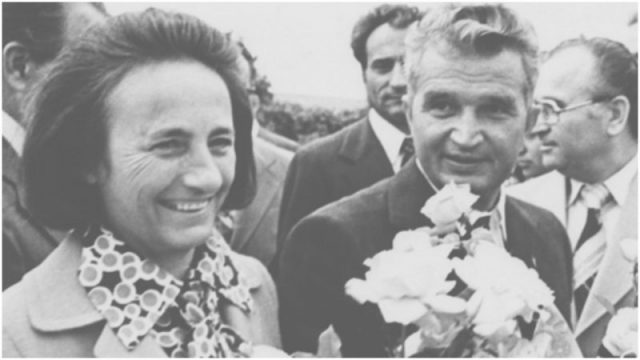
She was born to a peasant family and never finished high school. Like many other poor people at the beginning of the 20th century, she turned to communism as a means by which the working poor could have a larger (or the only) say in how the country was run.
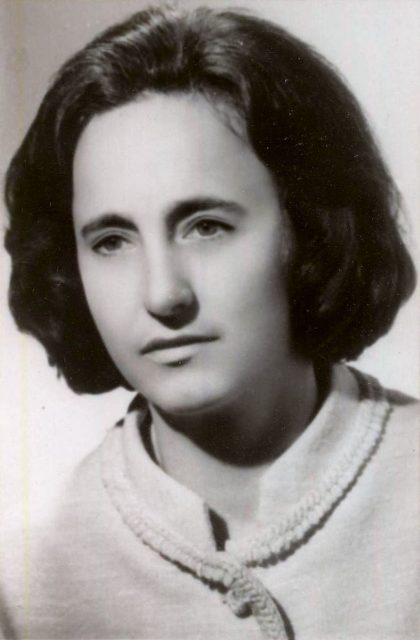
In 1939, she met Nicolae Ceaușescu, who by all accounts was a much more dedicated communist than she. As far as anyone can tell, it was “love at first sight” for Nicolae, and many Romanians and historians believe that almost from the start, Elena had him in the palm of her hand. They were married in 1947, at a time when Soviet-sponsored communism was taking over Eastern Europe.
Some twenty years later, Nicolae Ceaușescu had risen to the top of the Romanian Communist Party and in 1965 became the head of the Party. Two years later he was elected President of the Republic.
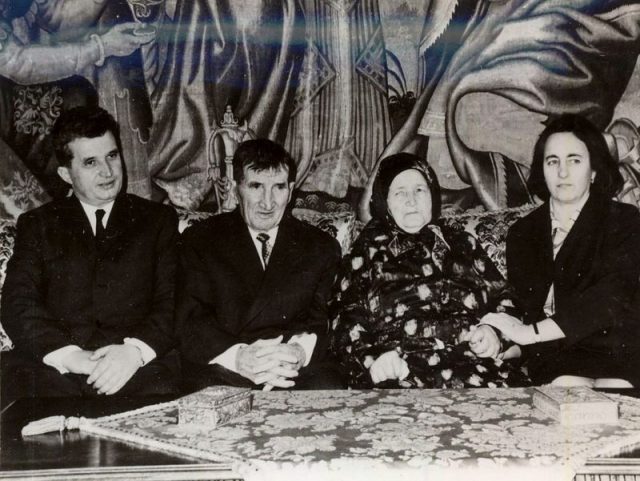
At first, Ceaușescu was a relatively popular figure, as far as communist leaders go. He did introduce some benefits to workers and over the course of his first years in office, made his own way in foreign policy at a time when most communist regimes in Eastern Europe took their cues from Moscow. To the people of his country, Ceaușescu was a man willing to risk the wrath of the U.S.S.R. to improve his country.
However, as time went by, the Ceaușescu’s became more and more enamored of wealth and luxury. When coal miners went on strike in 1977, party apparatchiks told the miners that their “Great Leader” and his wife were personally working on a solution to their problems and couldn’t meet with them. In reality, they were spending time at their Black Sea resort, complete with servants.
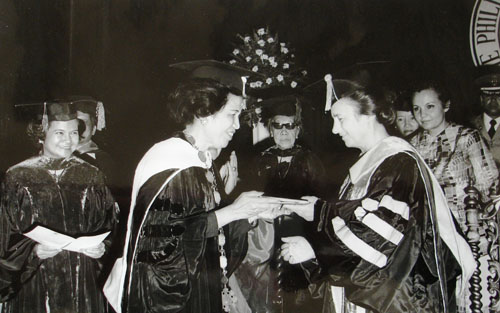
As Elena traveled the world, she became more and more jealous of what others had. In China, she was jealous of the power of Mao Zedong’s wife Jiang Qing (who was eventually imprisoned by Mao’s enemies), and in the Philippines she was jealous of the opulent lifestyle and good looks of Imelda Marcos (also overthrown).
As the years went by she became so vain that she would not allow profile pictures of her to be published, and what photos did reach the public eye were usually doctored in some way. Elena was self-conscious of her large nose, posterior and plain “peasant” features.
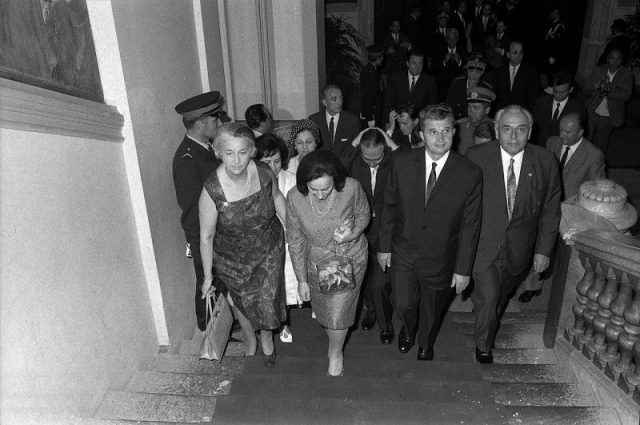
When the Communists came to power, Elena was a secretary in the Ministry of Foreign Affairs, and not a very good one. From 1972 on, however, as her husband solidified his power, she was elevated to more and more powerful government positions.
Over the course of the 1970s she was appointed or “elected” to more and more positions within the government and Communist Party, and in 1980, she was made First Deputy Prime Minister – second in power only to her husband.
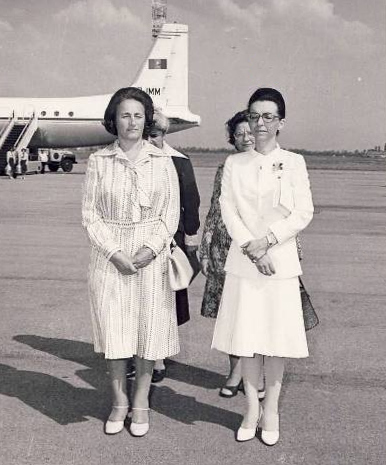
She was known as an exceptionally vindictive person whose bad side you did not want to be on. Her enemies, real or perceived, found themselves in dead-end jobs in remote parts of the country, or worse, a bunk in a labor camp or at the end of a rifle barrel.
Both she and her husband eventually ran the nation less like a communist one and more like their own personal fiefdom – many have compared the Ceaușescu family to a Mafia organization. If there was money to be made, the Ceaușescu’s had their hands in it.
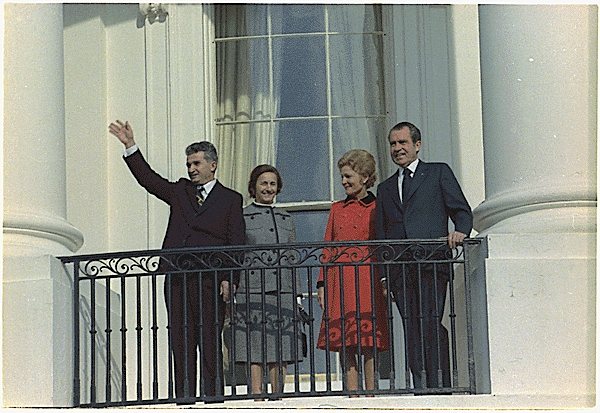
Elena was not only jealous of those women who were better looking or more stylish than she, but of anyone with more education. At the end of her life, however, she was a PhD in chemistry, and was the author of many scholarly papers on the subject. However, the real story is that she paid off/coerced noted scientists to write her doctorate and other papers.
Those few who refused found themselves never receiving a promotion again or teaching classes in the provinces. Though it was an open secret that Elena Ceausescu never did any of her own work/research, no one, either within Romania or internationally, called her on it – she was the wife of the most powerful man in the country whose nation did millions of dollars in business internationally.
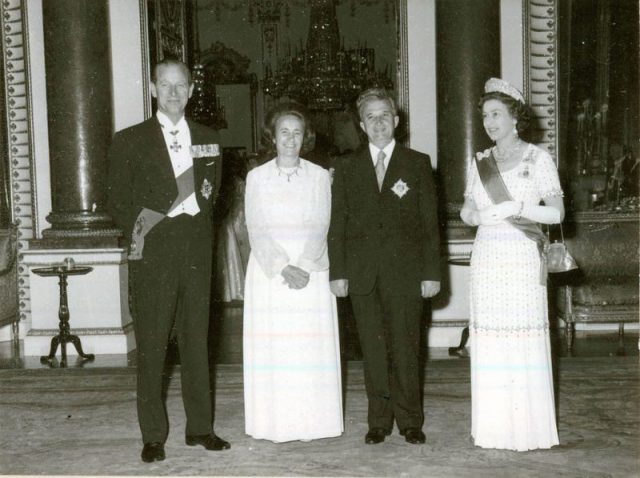
She was also the head of many different government departments having to do with the sciences. In her role as the head of the countries sciences, she gained a nickname, and not a flattering one: “Codoi,” which is the Romanian pronunciation of the abbreviation of CO². “CO” for “Carbon-Oxygen” and “doi”, the Romanian for “two”.
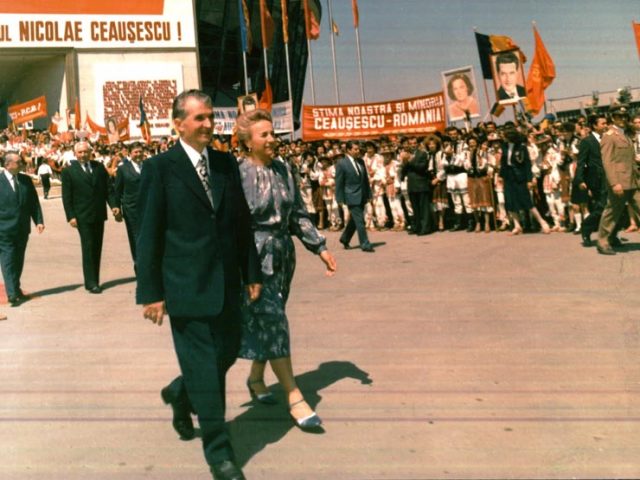
No accident that the word “Codoi” is not just an acronym, but an actual word in Romanian meaning “big tail,” which stout Elena Ceausescu had and tried to hide.
Romania was one of the last Eastern European nations to experience the anti-communist wave of 1989. Bloody revolution broke out in December, and on Christmas Day, Elena and her husband were convicted after a short show trial and shot.
Matthew Gaskill holds an MA in European History and writes on a variety of topics from the Medieval World to WWII to genealogy and more. A former educator, he values curiosity and diligent research. He is the author of many best-selling Kindle works on Amazon.
